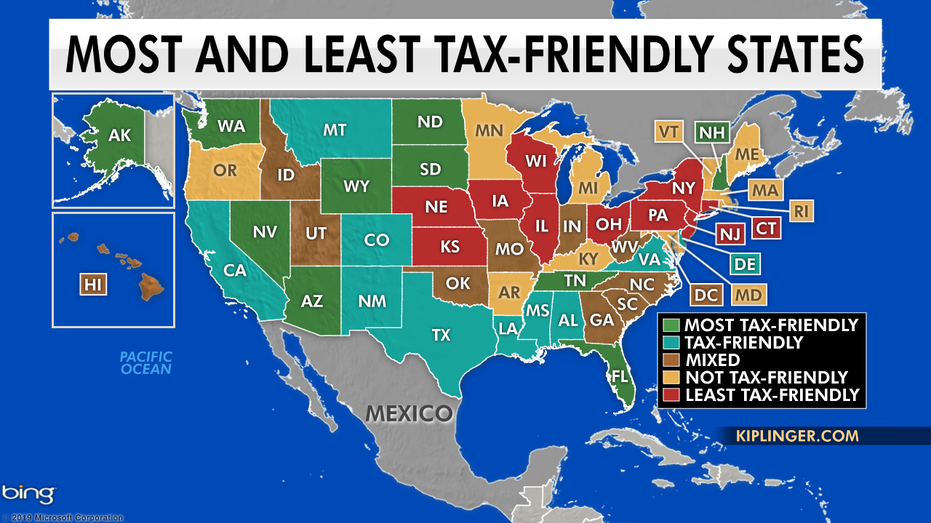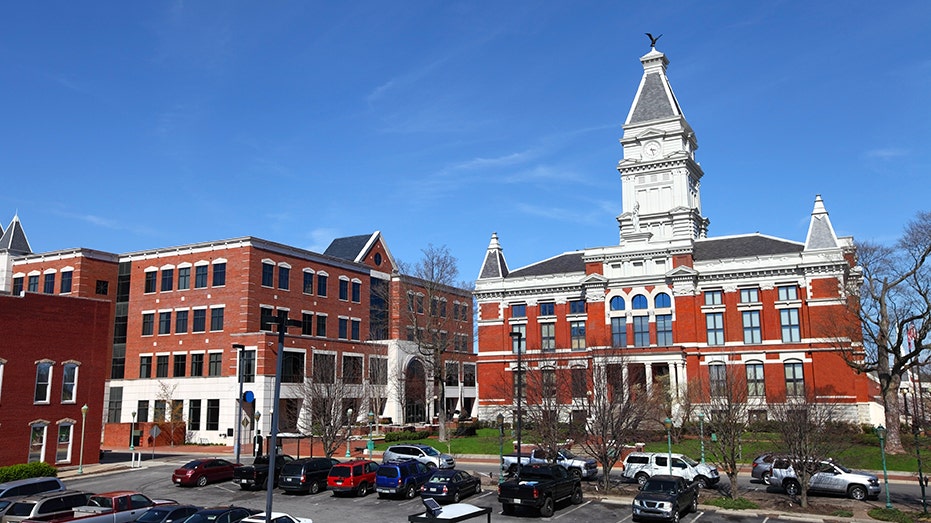The grass may not necessarily be greener, but more importantly, if you live in these states you get to keep more of your own hard-earned money.
Wyoming is the most tax-friendly state in the U.S., according to Kiplinger.com’s annual State-by-State Guide to Taxes, which was released this week.
The personal finance site notes that people who live in the Equality State “like to own a lot of land,” and lucky for them the average property tax is $635 per $100,000 in home value. Compare that to the average $2,408 in property taxes you pay per $100,000 in home value in Illinois, which took the honors as the least tax-friendly state in the U.S.
Kiplinger based the survey on a hypothetical couple with two kids and $150,000 in income a year, plus $10,000 in dividend income, and then looked at their income, property and sales tax burden.

Tennessee made it to the most-friendly list, however, it also tied with Arkansas for having the highest sales tax in the country, at 9.47 percent, once both state and local sales taxes are factored in, according to the Tax Foundation.
The site also released its annual Retiree Tax Map, which breaks down how each state taxes retirement income.
The five least tax-friendly states, beginning with the bottom of the list, are Illinois, Connecticut, New York, Wisconsin and New Jersey.
And here are the top five most tax-friendly states and their different tax rates, according to Kiplinger’s analysis.
1. Wyoming

Jackson hole in Wyoming
STATE INCOME TAX: None
EFFECTIVE INCOME TAX RATE: 0%
AVERAGE STATE AND LOCAL SALES TAX: 5.32%
AVERAGE PROPERTY TAX: $635 per $100,000 in home value
GAS TAXES AND FEES: 24 cents per gallon
2. Nevada

Reno at sunrise
STATE INCOME TAX: None
EFFECTIVE INCOME TAX RATE: 0%
AVERAGE STATE AND LOCAL SALES TAX: 8.14%
AVERAGE PROPERTY TAX: $693 per $100,000 in home value
GAS TAXES AND FEES: 33.78 cents per gallon
3. Tennessee

Clarksville is a city in and the county seat of Montgomery County, Tennessee
STATE INCOME TAX: 2% on interest and dividends
EFFECTIVE INCOME TAX RATE: 0%
AVERAGE STATE AND LOCAL SALES TAX: 9.47%
AVERAGE PROPERTY TAX: $768 per $100,000 in home value
GAS TAXES AND FEES: 27.4 cents per gallon
4. Florida

Lake City, Florida (Credit: Lake City Police Department)
STATE INCOME TAX: None
EFFECTIVE INCOME TAX RATE: 0%
AVERAGE STATE AND LOCAL SALES TAX: 7.05%
AVERAGE PROPERTY TAX: $1,041 per $100,000 in home value
GAS TAXES AND FEES: 41.99 cents per gallon
5. Alaska

STATE INCOME TAX: None
EFFECTIVE INCOME TAX RATE: 0%
AVERAGE STATE AND LOCAL SALES TAX: 1.76%
AVERAGE PROPERTY TAX: $1,234 per $100,000 in home value
GAS TAXES AND FEES: 14.66 cents per gallon







